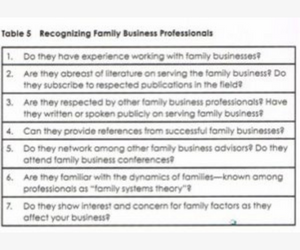A Treasure Trove for Future Generations
The Rosy Periwinkle
The rosy periwinkle doesn’t look like a plant that’s worth $200 million a year. Except that its flowers are pink, it resembles the blue periwinkle commonly used as ground cover.
To the desperate parents of childhood leukemia victims, however, the rosy periwinkle is worth all the money in the world. Chemicals found only in these plants have a unique ability to keep certain kinds of cancerous cells from reproducing. These chemicals have helped increase the survival rate for childhood leukemia from 10% to 95%.
The economic value of these medicines is close to $200 million a year. Who can imagine the joy and relief they’ve provided to young patients and their parents?
Impressive as the rosy periwinkle is medically and economically, its importance doesn’t end there. Conservationists also prize the rosy periwinkle because it’s an excellent example of why biodiversity is important.
The rosy periwinkle is native to the island of Madagascar. This island off the coast of Africa has a rapidly expanding population, and many of the native plants and animals have vanished as cities and towns overtake their habitat. The rosy periwinkle escaped extinction, but what if it had been lost before we ever knew about its extraordinary medicinal properties?
Scientists know that countless other useful compounds await discovery.
Michael Novacek, vice president of the American Museum of Natural History (AMNH), believes that no matter how insignificant a species may appear, it could have great value..
As it is, more than a quarter of all the prescriptions from pharmacies come from chemicals originally discovered in plants. Another 13% come from microorganisms, and 3% come from animals. Yet these materials are only a minuscule fraction of the ones that are almost certainly available. We just haven’t studied them yet.
In most cases, we haven’t studied them yet because we don’t even know they’re there. As Novacek puts it, we suffer from “unacceptable ignorance.” Up to now, he says, we’ve named 1.6 million species, but this is far, far short of the total. Scientists estimate that there are between 10 million and 100 million species on earth today, and we don’t even know for sure which figure is more likely.
How can we be so unsure about the number of species? The answer is that in the rain forests, life exists in a profusion and complexity that’s hard to imagine. In the Amazon, for example, one scientist found 43 different species of ants on a single tree. To put that figure in perspective, that’s more than the number of ant species in all of England.
The Destruction of Habitat and Its Impact
What worries conservationists is that destruction of habitat is causing thousands of species to go extinct each year. Says Novacek, “The loss of tropical rain forest is proceeding at an extraordinary rate. We’re losing rain forest equivalent in area to the state of Florida each year.”
In 1993, Novacek and his colleagues at the AMNH established the Center for Biodiversity and Conservation. “It’s purpose,” says the Center’s Director, Dr. Francesca Grifo, “is to focus the museum’s broad scientific and educational expertise on biodiversity conservation.” The Center also trains future scientists from around the world so there will be more specialists available to undertake this work.
Because of the work of these dedicated people, future generations may benefit from many other organisms just as wonderful as the rosy periwinkle.
Search Blogs
Latest Posts
Dancing Warriors: How Russia’s Propaganda is Impacting Professional Stages
https://foreignpress.org/journalism-resources/dancing-warriors-how-russias-propaganda-is-impacting-professional-stages Publication –foreignpress.org
Taking the Panic Out of Panic Attacks—With Technology
https://foreignpress.org/journalism-resources/taking-the-panic-out-of-panic-attackswith-technology Publication –foreignpress.org
An Evening Dedicated to Mental Health and Recovery in War-Torn Ukraine
https://foreignpress.org/journalism-resources/an-evening-dedicated-to-mental-health-and-recovery-in-war-torn-ukraine Publication –foreignpress.org
Ukrainian Kids Get a Vacation from War When a New Hampshire Community Adopts Them
https://foreignpress.org/journalism-resources/ukrainian-kids-get-a-vacation-from-war-when-a-new-hampshire-community-adopts-them Publication –foreignpress.org
Subscribe to Updates
About Author

Mitzi Perdue is the widow of the poultry magnate, Frank Perdue. She’s the author of How To Make Your Family Business Last and 52 Tips to Combat Human Trafficking. Contact her at www.MitziPerdue.com
All Articles
Choosing Your Family Business Advisors
Choosing Your Family Business AdvisorsKnow when you need to get help. People often ask me the secret of Frank Perdue’s success. He had to do hundreds of things right. He had to be able to see the big picture as well as be detail oriented. But there was something else:...
Substance Abuse and the Family Business
Substance Abuse and the Family Business When it comes to substance abuse, members of a family business are no more immune than the rest of the population. However, as family business advisor Loyd Rawls points out, the consequences can be more dire because serious...
Infertility: Advances In Treatment
Infertility: Advances In TreatmentAge and Infertility are Linked Infertility affects roughly 12% of women. By the time a woman is in her early 40s, her chance of infertility rises to 20%. It’s a particularly difficult problem for the older woman because the quality...
Career Advice for Young People: Shut Up and Listen!
Career Advice for Young People: Shut Up and Listen! Jack Tatem, a former Perdue Vice President, has some serious advice for young people. It’s simple and it can make a big difference in your career. It has to do with listening. The advice is, “Shut up and listen!” He...
Embedding The Family’s Values by Creating an Ethical Will
Embedding The Family’s Values by Creating an Ethical WillOriginal Article written by Mitzi can be found here. Much as I admired Frank Perdue for his success with his family poultry business, I admired him even more for his success as a family man. Since the happiness...
6-Step Solution to Almost Any Problem
6-Step Solution to Almost Any Problem 1. Describe the Problem. Preferably do this in writing. The act of putting the problem into words can clarify your thinking. 2. Write Down the Obstacles. Although I’m a fan of positive thinking, I’m also a fan of research...





